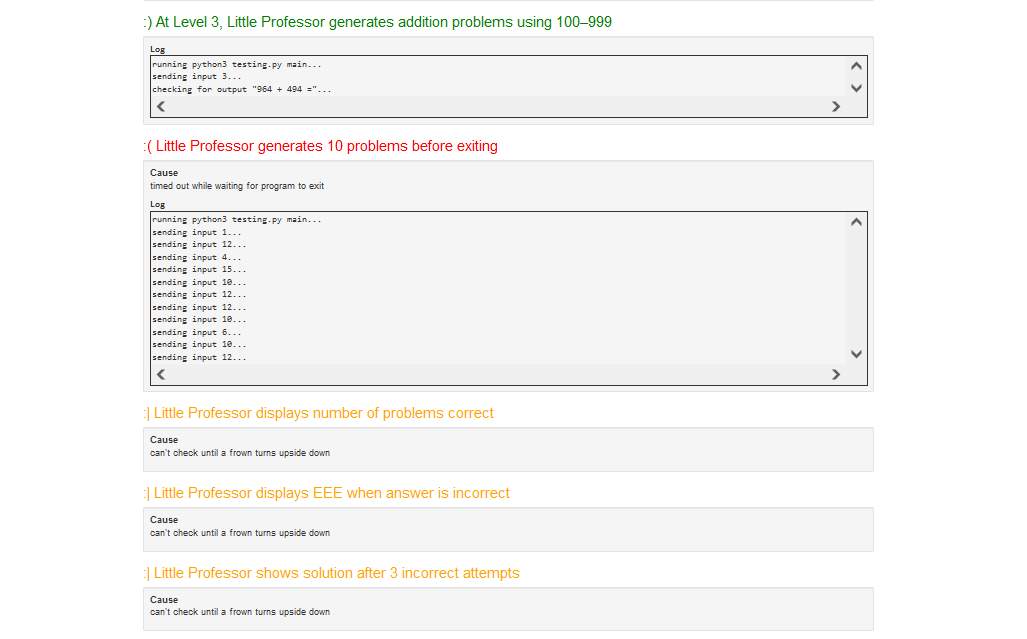hi i am solving this question >> https://cs50.harvard.edu/python/2022/psets/4/professor/ my code is 100% correct. i have tested it several times but check50 is not able to pass all the tests. this is my code >
import random
def main():
level = get_level()
questions = 10
lives = 3
score = 0
while questions > 0:
num1, num2, suum = generate_integer(level)
while lives > 0:
guess = get_input(num1, num2)
if guess != suum:
print("EEE")
lives -= 1
continue
score += 1
break
if lives != 3:
print(f"{num1} + {num2} = {suum}")
lives =3
questions -= 1
print(F"Score: {score}")
def get_input(num1, num2):
while True:
guess = input(f"{num1} + {num2} = ")
try:
guess = int(guess)
return guess
except ValueError:
return guess
def get_level():
while True:
try:
level = input("Level:")
level = int(level)
except ValueError:
continue
if level < 1:
continue
elif level > 3:
continue
else:
return level
def generate_integer(level):
if level == 1:
num1 = random.randrange(9)
num2 = random.randrange(9)
return num1, num2, (num1 + num2)
if level == 2:
num1 = random.randrange(10, 99)
num2 = random.randrange(10, 99)
return num1, num2, (num1 + num2)
if level == 3:
num1 = random.randrange(100, 999)
num2 = random.randrange(100, 999)
return num1, num2, (num1 + num2)
if __name__ == "__main__":
main()
these are the errors that i am getting even though i think my code is 100% correct
